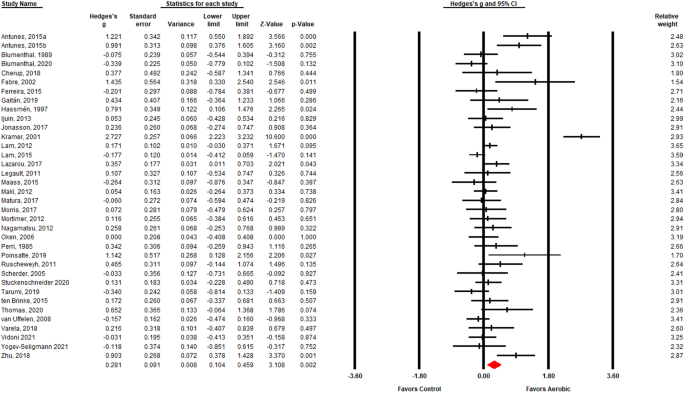On the 17th of February, researchers from Pittsburgh in the USA published a meta-analysis of randomised controlled trials observing the effects of aerobic exercise on episodic memory in late adult life.
Why?
One of the earliest memory systems to decline with increasing age is episodic memory, or remembering past personal events and experiences. Given a lack of pharmaceutical treatments to prevent or reverse this deterioration, it is important to investigate non-pharmaceutical methods for maintaining episodic memory.
Aerobic exercise remains one of the most promising approaches for enhancing cognitive function in late adulthood. But the potential positive effects on episodic memory remain controversial and poorly understood. Prior meta-analyses have reported minimal improvements in episodic memory following aerobic exercise, but have also been limited by restrictive inclusion criteria.
What?
The research group conducted a meta-analysis of randomised controlled trials to determine if aerobic exercise influences episodic memory in late adulthood (mean age = 70.8 years). Thirty-six studies met inclusion criteria, including data from 2750 participants.
Their analysis showed that aerobic exercise interventions are effective at improving episodic memory, with a significant effect for studies with a mean age between 55–68 but not 69–85 years. Control groups were variable and included those with nonaerobic physical activity, e.g. stretching.
The following forest plot summarises the results:

This plot suggests that aerobic exercise positively influences episodic memory among adults ≥55 years without dementia.
Limitations of the study (and all meta-analyses):
- Meta-analysis remains a questionable scientific statistical method.
- If any of the incorporated trials were large enough (with a positive result) to answer the question, such an approach would not be necessary. In other words, this method is used to uncover weak causation/association.
- It is impossible to distinguish causation and association – some other maybe bizarre association of exercise (e.g. less exposure to pollution) may be involved.
- It does not suggest a mechanism for the causation/association.
- There may be unconscious bias as researchers favour positive studies, i.e. ones that confirm their theory.
How (does it affect you)?
It may not, if you are in a younger age group than those involved in this study. But if you are older than 55 without dementia, this study provides some evidence to encourage you to do regular aerobic exercise like running, cycling or swimming for a probable positive effect on your memory.
If confirmed by a large RCT, these results could have far-reaching clinical and public health relevance, highlighting aerobic exercise as an accessible, free, non-pharmaceutical intervention to improve memory in late adult life.
The full study can be found here.
As ever, best wishes from myHSN!

